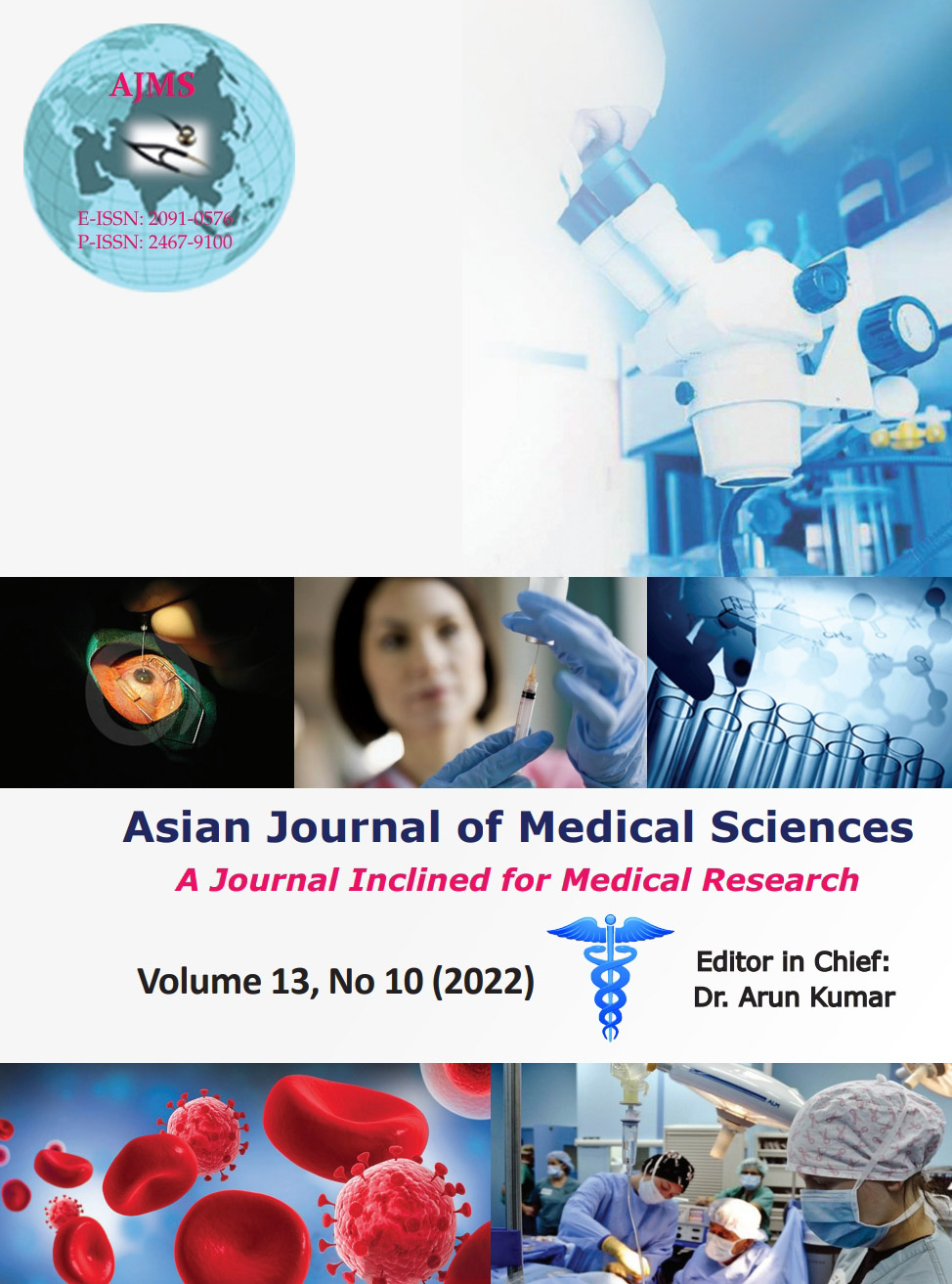An epidemiological study to determine demographic factors influencing COVID-19 IgG antibody production among the adult population of urban area in Malegaon, Maharashtra - A cross sectional study
Keywords:
COVID-19; IgG antibody; Vaccine; SeroprevalenceAbstract
Background: Seroprevalence of COVID-19 antibody production in a person can be dependent on many physiological and demographic aspects such as previous infection, age, sex, body mass index, and also status of vaccination. It is of immense value to know about demographic aspect of COVID-19 antibody production so as to know about vulnerable population and suggest preventive measures.
Aims and Objectives: The present study was aimed to determine effect of demographic variables COVID-19 antibody production in population of urban area.
Materials and Methods: In this study, a total of 2454 subjects were screened for COVID-19 neutralizing antibody by ELISA technique. Subjects more than 18-year-old were selected for the study. We used cluster sampling method for data collection. A pre-structured questionnaire was administered after informed consent and 5 mL venous blood was collected in plain bulb for testing.
Results: The prevalence of neutralizing antibody was found to be 93.9%. Female had 95% positive antibodies against males (92.34%). Maximum positive antibody status was seen in age group of 20–40 (55.6%). About 77.9% subjects following mixed diet were having positive COVID-19 antibody test as compared to subjects following pure vegetarian (10.2%). About 83.2% subjects who received vaccine showed positive antibody test. The lowest positivity is seen in underweight subjects (8%) followed by obese subjects (12.7%). Maximum inhibition % was seen in subjects using Vitamin C Zinc tablets (92.1%). The lowest inhibition was seen in subjects using Unani Kadha. A one-way ANOVA revealed that there was not a statistically significant difference in prophylactic measures for prevention of COVID-19 infection other than vaccination and COVID-19 neutralizing antibody inhibition %. ([F-1.363], P=0.244).
Conclusion: COVID-19 neutralizing antibody prevalence was found to be much higher in the population (96%), which was mostly associated with younger age, gender, diet, and vaccination status of the population. Extensive studies are required to establish any association between prophylactic methods other than vaccination and COVID-19 antibody response.
Downloads
Downloads
Published
How to Cite
Issue
Section
License
Copyright (c) 2022 Asian Journal of Medical Sciences

This work is licensed under a Creative Commons Attribution-NonCommercial 4.0 International License.
Authors who publish with this journal agree to the following terms:
- The journal holds copyright and publishes the work under a Creative Commons CC-BY-NC license that permits use, distribution and reprduction in any medium, provided the original work is properly cited and is not used for commercial purposes. The journal should be recognised as the original publisher of this work.
- Authors are able to enter into separate, additional contractual arrangements for the non-exclusive distribution of the journal's published version of the work (e.g., post it to an institutional repository or publish it in a book), with an acknowledgement of its initial publication in this journal.
- Authors are permitted and encouraged to post their work online (e.g., in institutional repositories or on their website) prior to and during the submission process, as it can lead to productive exchanges, as well as earlier and greater citation of published work (See The Effect of Open Access).




